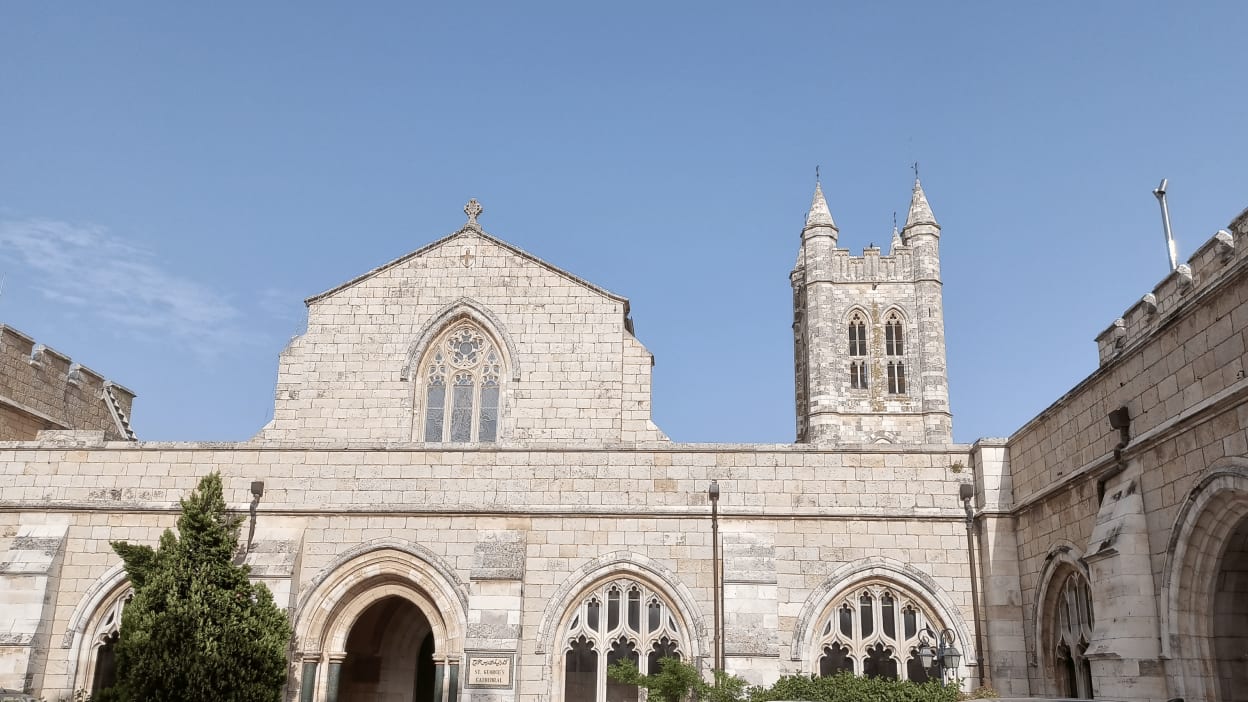In the midst of all that is unfolding in Israel and in Gaza, the church is present. Indeed, Arabs are named amongst those present on the Day of Pentecost (Acts 2:11), and there have been Arabic followers of Jesus across the Middle East ever since that time. They belong to a wide variety of denominations – from Greek Orthodox and Roman Catholic, to Armenian Evangelical and Lutheran.
The continued presence and work of Christians in the Middle East matters hugely to me*, and it is a great privilege that I am able to work alongside and for the church here as it exemplifies the love of Christ through acts of loving kindness, and a passionate desire for peace with justice for all.
The size and impact of the local church in the Middle East
Even though things like conflict, immigration and relative birth rates have contributed to a decline in the Christian population throughout the region over the past century, the impact of the church strongly outweighs its numbers in society.
Despite the shrinking presence of congregations (in the mid 1940s, Christians comprised 20 per cent of the population of what is now the State of Israel and the Occupied Palestinian Territory, however today it is less than 2 per cent), the church as an expression of the body of Christ is remarkably unified in the region. The Middle East Council of Churches includes the Catholic Church and the Patriarchs and Heads of Churches in Jerusalem, who regularly pray together and do advocacy for the Christian presence and for peacebuilding in the Holy Land.
Anglicans have been active in the region since the mid 1800s. They represent a small number of the total Christian community, however they continue to contribute to the development of society wherever they are and they exercise an outsized practical impact on the communities they live in.
A complex context
To say that the church context in the region is a complex one, is something of an understatement. The Diocese of Jerusalem (which is part of the Province of Jerusalem and the Middle East) covers five jurisdictions – Lebanon, Syria, Jordan, Palestine and Israel. These are all places with different governments, cultures and demographic compositions. Across these lands, the church has about 30 parishes and an even greater number of institutions. As Muslim and Jewish populations make up the majority of people, the work of the Diocese has to be sensitive to how we show the love of Christ in ways that are appropriate for the context. Often, this is outworked through a presence of diakonia (service amongst others) – helping neighbours, refugees and those in need, and doing things like working to provide education and relieve suffering.










